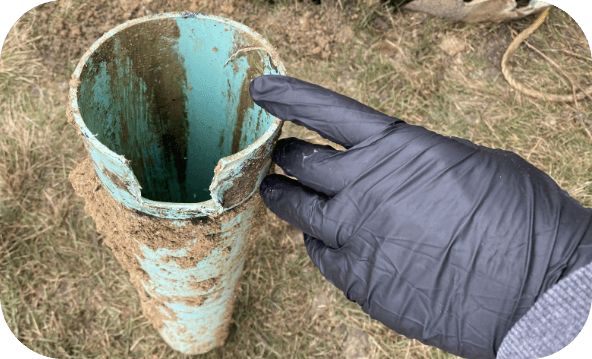Arvada Plumbing Camera Inspection
The plumbing system is a critical part of your home. This system is responsible for supplying you and your family with fresh water. Your pipes also carry wastewater, sewage, and food particles from your home to Arvada’s sewer system.
Over time, your pipes can develop leaks or become clogged. Your pipes also may shift because of soil erosion or tree roots. Unfortunately, these problems are easy to miss.
Many homeowners miss the subtle warning signs of developing plumbing problems. You can find the components of your plumbing system behind walls, above ceilings, and underground. Due to the location of your pipes and drains, a plumbing problem is easy to miss.
Our plumbers at TYCO Plumbing have the necessary to identify the warning signs of a plumbing problem. We can identify slow drains, strange odors, and damp spots that can indicate a hidden problem in your home’s pipes.
Mud or puddles in your yard can indicate a broken sewer line. Once our plumbers detect the presence of a plumbing issue, they can conduct a pipe camera inspection to diagnose the problem.
Our team members can use a sewer camera to locate and diagnose these problems.
- Clogged or leaking drains
- Clogged or leaking sewer line
- Tree root damage
- Misaligned or collapsed pipes
- Poor pipe installation
A pipe camera inspection is a non-invasive process. It can eliminate the need to dig up your yard or remove drywall to locate the problem. During a plumbing camera inspection, our plumbers use a small waterproof camera to get a closer look at your pipes. They place the camera on a cable and insert it into a drain or other access point.
As the camera moves through the pipes, the camera sends live video to a screen. The plumber looks for evidence of clogs, cracks, or other problems.
With this technology, our plumbers can examine the pipes under your foundation or behind your walls. They use this video footage to note areas of concern or recommend repairs. This is a great way to identify and repair small problems before they turn into expensive emergencies.



